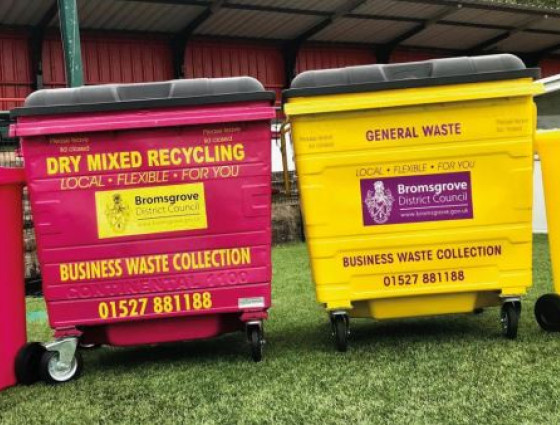
Business waste and duty of care
If you operate any form of business, you have a legal responsibility to safely contain and legally dispose of any waste produced.
In 2023 the Government announced the “Simpler Recycling” legislation which affects both households and businesses.
From 31 March 2025 all businesses (excluding micro-businesses with less than 10 employees) will be required to recycle the following materials:
- aerosols
- aluminium cans
- cartons (“Tetrapaks”)
- glass bottles and jars
- metal packaging (metal tins such as biscuits)
- paper and cardboard
- plastic bottles, pots, tubs and trays
- steel cans
From March 2027 micro-firms will be required to collect the materials above and larger firms who are already recycling will be required to add plastic film (bread bags, films from the top of fruit punnets etc) to the materials they recycle.
Food waste in the general waste will be strictly prohibited so businesses will have to have a separate food waste collection regardless of the amount of food produced. This is in line with households having a food waste collection from 2026 onwards.
For more information speak to your waste collection company.
Legally disposing of waste
Businesses must dispose of their waste correctly, if you don’t, you could be taken to court and prosecuted under the Environmental Protection Act 1990 and other related legislation.
The maximum penalty is a fine of £50,000 and up to 12 months imprisonment at Magistrates Court and 5 years imprisonment and unlimited fine at Crown Court. The government website has all the information needed about disposing waste and what your responsibilities are as a business.
Dispose of business or commercial waste: Your responsibilities
The Environmental Protection (Duty of Care) Regulations require all businesses to:
- make sure whoever collects your waste is registered with the Environment Agency and has the authority to do so
- complete a ‘waste transfer note’ for each load of waste that leaves your premises. Dispose of business or commercial waste: Waste transfer notes (GOV.UK)
- prevent waste where possible (by recycling and reusing)
- sort and store waste securely
- stop any waste being disposed of illegally (report any incidents if they do)
Please note: you have extra responsibilities if you’re dealing with hazardous waste. Hazardous waste: Overview (GOV.UK)

 Facebook
Facebook X
X Email
Email WhatsApp
WhatsApp Messenger
Messenger